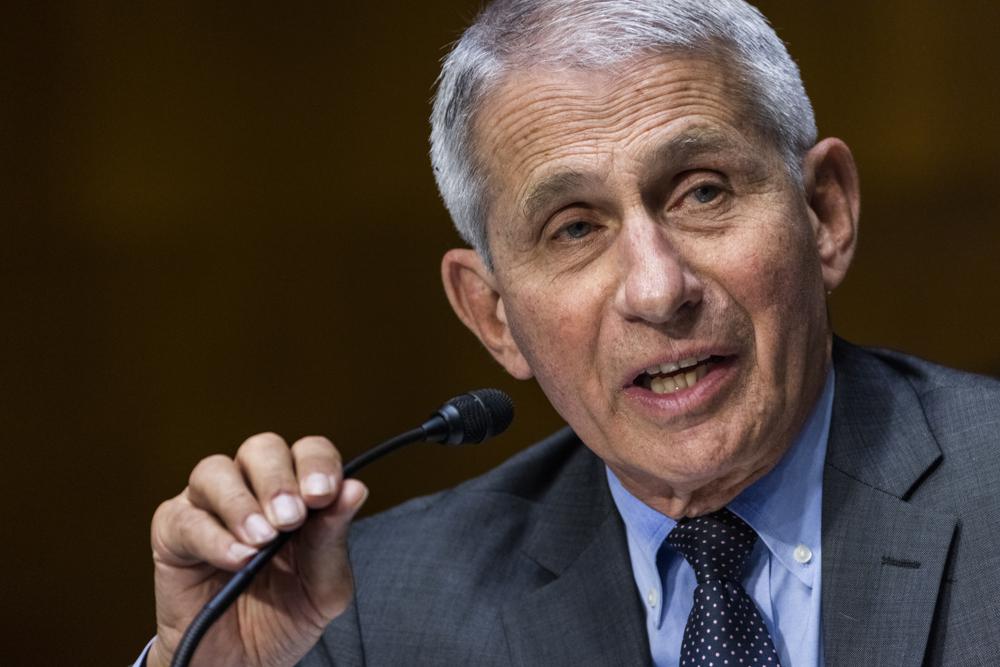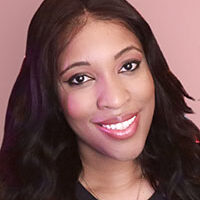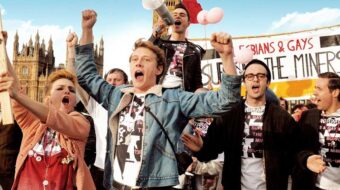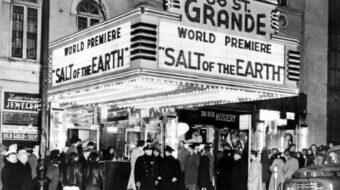
At the time of writing this review, we are still in the midst of a deadly global pandemic. Despite what misinformation one might have scrolled across on Facebook, the thousands of deaths cannot be denied. On second thought, that isn’t true. These truths can be denied—and have been denied—depending on one’s source of “information.” No one knows this better than scientist and immunologist Dr. Anthony Fauci.
Fauci has been on the frontlines of four deadly disease outbreaks in his 40-year career. While the new documentary Fauci treats viewers to an intimate look at the scientist, it accomplishes an even greater feat of showcasing the stormy relationship between science, politics, and public discourse—and what can happen when it all goes off the rails.
The documentary is directed by John Hoffman and Janet Tobias, who gained access to the man who has graced many of our television screens since the COVID-19 pandemic began. The film traces Dr. Fauci’s life and work from his childhood in Brooklyn, N.Y., to his time now serving as the Chief Medical Advisor to the President of the United States. The documentary does a fine job interweaving the intimate moments of Fauci’s life, such as meeting his wife and the birth of his daughters, with the impact his research has made on major medical happenings in the history of mankind.
This is important because one can’t fully tell the story of Anthony Fauci without diving into the major stories the rest of us have lived through—stories in which he has played a major part. The outbreaks of HIV/AIDS, SARS, Ebola, and COVID-19 all make extensive appearances here. Because of this, the film isn’t lighthearted viewing but rather an uneasy history lesson which will undoubtedly stir emotions in its viewers.
A large focus of the film is the HIV/AIDS outbreak that affected not only the U.S. but countries all over the world. The reason the disease plays such an outsize role is because a decision Dr. Fauci made related to it changed the course of his career forever. Viewers unfamiliar with the subject will come to find out that the doctor was one of the first medical professionals to turn his attention to HIV/AIDS in the 1980s. This was despite being told by colleagues that it would doom his career, as the disease was dismissed because of its association with gay men.
His work on this outbreak is a through line in the film that puts into context all of his other engagements with outbreaks that would follow, including his strained relationship with the former president, Donald Trump.
HIV-related mortality rates rose steadily in the 1980s, and although there has been a significant decline, the number of people affected by HIV/AIDS is still high. In the United States alone, there are more than one million people living with HIV today. The word “living” is key here because before research and study were devoted to combatting the disease, hundreds of thousands were dying within months of being diagnosed in the early ’80s. Now, due to innovations in medication and treatment, HIV/AIDS does not have to be a death sentence. This improvement was not instantaneous, and as the documentary shows, no one understood the bumps on this road better than Anthony Fauci himself.
The film does a great job of showing the different angles of the HIV/AIDS outbreak. Archived video of homophobic hysteria and ignorance in response to the outbreak is deployed by the filmmakers, reminding us of another dark time in our history. Activists from ACT UP (AIDS Coalition to Unleash Power) are interviewed, speaking of the bond Dr. Fauci formed with them in the ’90s when he attempted to bridge the gap between the scientists and the public. It also shows that Fauci is no stranger to public campaigns against him, as we see the hate he received during this period.
Although the focus on the HIV/AIDS pandemic is powerful, it does feel lacking when it comes to showing all the key players that influenced how it played out. There is a rather glaring omission of the controversy concerning how former Presidents Ronald Reagan and George H.W. Bush responded to the epidemic when in office. Reagan led an administration that refused to speak publicly about HIV/AIDS for several years, considering it the “gay plague.” When Bush succeeded Reagan, it would take mounting public pressure from organizations like ACT UP to push him to sign the Ryan White CARE Act that provided health coverage for low-income people with HIV/AIDS.
By omitting these details, the doc misses an opportunity to provide a clearer picture of how political dealings also influenced public discourse when it came to the epidemic. Yet, what the film misses with one outbreak, it drives home with another. Fauci can’t avoid the elephant in the cinema room, which is the coronavirus pandemic. Using Dr. Fauci as a central focal point allows for a fascinating exploration of the differences and similarities of both outbreaks, and how we may be in more trouble now than we were back then.
Yes, Donald Trump is shown in this film, and no, it is not in a good or neutral light (thankfully). At one point in the movie, Dr. Fauci is asked to describe his time working with Trump. To this inquiry, the doctor responds with “Yikes.” This sets the tone for an unapologetic look at the battle of science versus propaganda during the onset of the coronavirus pandemic. It was surreal to watch the White House press conferences shown in the doc (such as the infamous moment Trump suggested drinking bleach to combat infection) and then realize this isn’t just history—we are still living this moment. No doubt a heavy weight will set in for many viewers as they connect the dots between similar mistakes of hysteria, bigotry, and anti-science attitudes both past and present.
There have been more than 700,000 people with AIDS who have died in the U.S. since the first reported cases of the disease in 1981. The coronavirus has surpassed this figure in less than two years. The documentary shows that there are lessons to be learned from our turbulent past, and more lives may be lost if we fail to do so.
The film is hopeful that we will make it through the pandemic, but it makes clear that division and hostility are now the biggest hindrances to that effort. It seems fitting—given that Dr. Fauci remarks how he picked a life of public service—that a film focusing on him would go beyond the man in order to highlight the struggles of us all.
One of the best lines in the doc is when Dr. Fauci speaks about the hate he receives from COVID-19 deniers and anti-vaxxers. He says that they don’t like him because “I represent something that is uncomfortable for them—the truth.” For that very reason, they will probably absolutely hate this film. The themes explored in the doc are not comfortable, but they do provide some heavy truths through the lens of a doctor who has been in the thick of it all. It is somber entertainment, but sobering as well.
Fauci is available on the Disney+ streaming service Oct. 6, 2021.












Comments